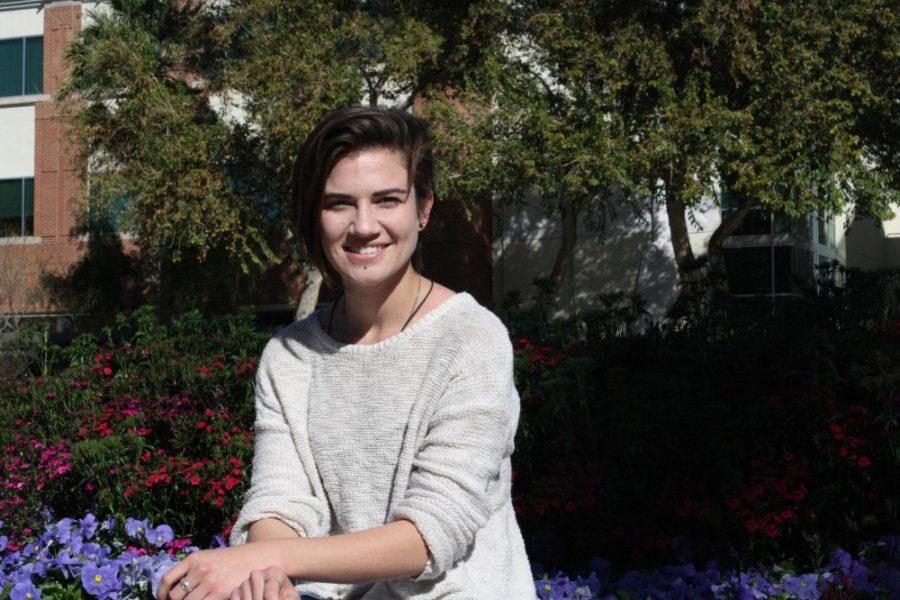The UA Department of Chemistry and Biochemistry hosted its annual poster fair Monday. The fair provided opportunities for seniors in both the chemistry and biochemistry majors to present their senior capstone and thesis research projects.
Non-major students who have been working in chemistry and biochemistry labs were also encouraged to present.
The poster fair allowed the department to showcase its many diverse research opportunities that are available for undergraduates at UA, as well as answer any questions undergraduates had about the fields of chemistry and biochemistry.
This event has been occurring for more than 10 years and offers an opportunity for students to get experience in presenting their research in a professional setting before graduating.
“This event combines students in CBC that are completing their senior research thesis, which is required for a biochemistry B.S. and honor students in chemistry,” said Olivia Mendoza, senior program coordinator and adviser for the Department of Chemistry and Biochemistry. “This is a chance to bring the UA community [members] that are interested in science research to see what CBC students are doing their research on.”
Research topics ranged from honeybees and mosquito wingspans to spectroscopy and litium-sulfur batteries, from biomedical implants and activity in ant brains to pancreatic and lung cancer and bone degradation.
The poster fair not only showed that current students have undertaken and completed impressive research projects, but it also demonstrated the students have become competent, innovative and creative young scientists who have tackled an impressive task successfully.
As an additional way to recognize students on their exceptional research, the chemistry and biochemistry department offered a number of prizes in different categories to account for the many diverse projects being presented.
Prizes were awarded for emerging research, accomplished research—which is research conducted for more than two semesters—and senior thesis research. Additionally, all of those categories were divided into physical or life sciences. First and second place winners were awarded a monetary prize.
Faculty members from the chemistry and biochemistry departments, as well as graduate students from the department judged the research projects.
Follow Exene Anderson on Twitter.









